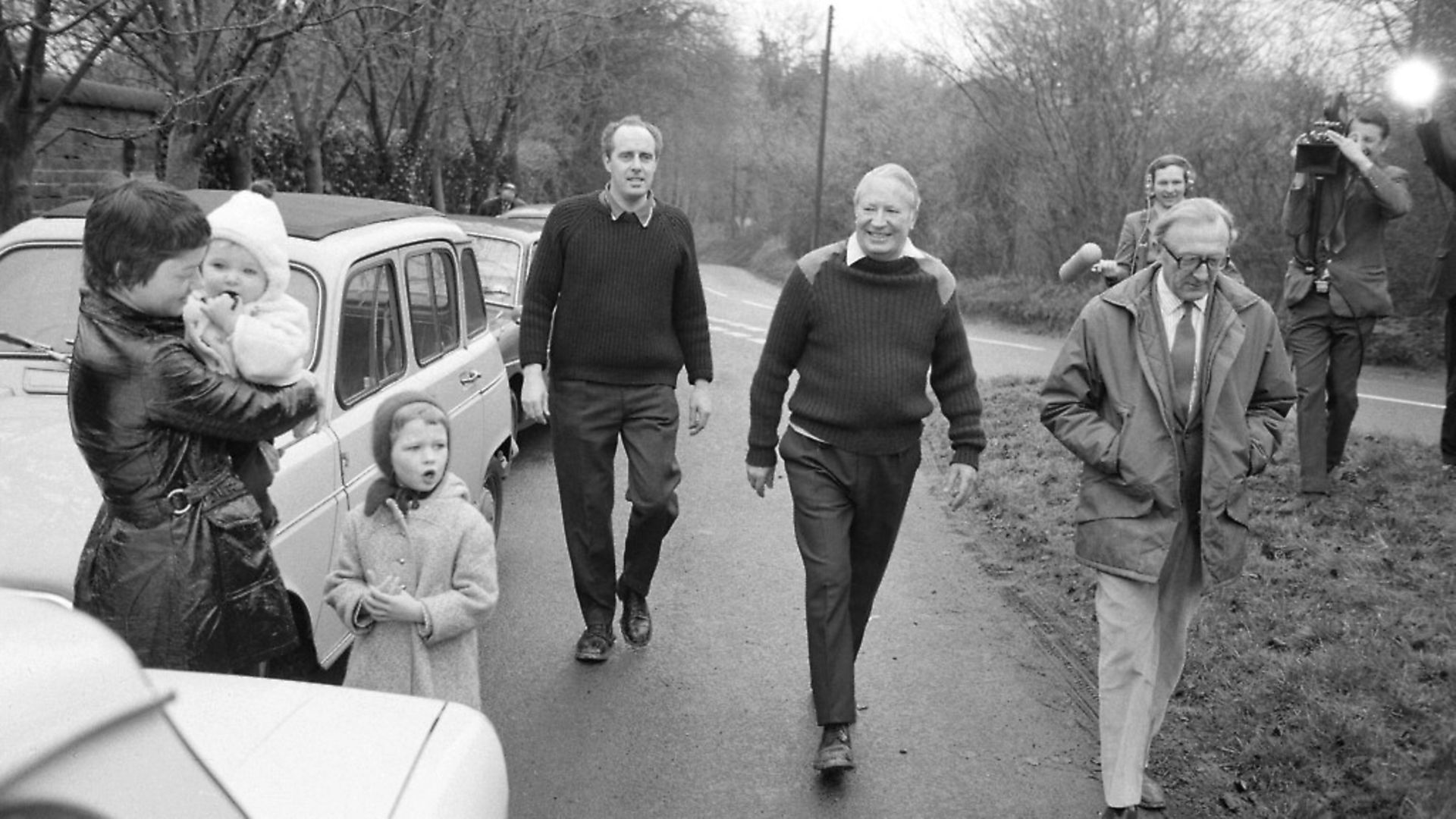
Politicians trying to ‘out-bloke’ each other has become essential in an age of gathering populism, says WILL SELF.
In a video available on YouTube, the prime minister apparently chats amiably to an unseen interlocutor while making a cup of tea – at one significant juncture, he rues his inability to order a takeaway Thai curry to be delivered to Number 10 Downing Street. Such videos have become a staple of what we still, laughably, refer to as our ‘political discourse’ – but many people believe this one is a fake, fabricated using new video editing techniques that allow for the manipulation and interpolation not just of frames, but even individual pixels.
Anyway, real or fake, the aim of the video is to make Johnson appear as blokeishly appealing as possible: Old Etonian he may be – massive earner as well; nevertheless, if you cut him does he not bleed peanut sauce like the rest of us? This man-of-the-people shtick is, of course, essential in an age of gathering populism – but it has a respectable pedigree: Harold Wilson notoriously affected a proletarian tobacco pipe in public, while puffing patrician cigars in private. Still, he at least was the titular leader of a party founded in the interests of the working classes – Tory leaders, by contrast, have usually attempted to re-up their social standing: One recalls the painfully strangulated vowels of both Edward Heath and Margaret Thatcher, both of whom had elocution lessons as children, to rid them of their déclassé diction.
The now ubiquitous English estuarine accent is, perhaps, one of the most futile examples of what’s termed ‘upstream change’ – that process whereby alterations in the cultural superstructure are thought to effect ones in the economic base. So it is that we all fall into the delusion that since everyone talks with the same slightly whining Essex tonality, while addressing all and sundry by their first names, everyone must be, like, equal an’ that. ‘Call me Tony’ Blair was the first premier to put this de-elocution lesson into action – and during his second term as prime minister, commentators duly noted his increasingly nasal tones, and the bedizening of his speeches with phatic ‘y’knows’. To be fair to Jeremy Corbyn he never gets close to such impostures – but then again, I can’t be altogether certain, since whenever I try listening to him I fall asleep within seconds, such is the leaden timbre of his self-righteous drone.
It could be that Corbyn-the-leveller sees his monotone as a sort of tonal equivalent to the society he seeks to create – but really, if he wants to out-bloke Johnson (and behind him, the blokemeister general, Nigel ‘two pints of bitter and a packet of fags’ Farage), he needs to pay close attention to the way people really speak. Where I live the younger folk – contrary to what I said above – actually have a sort of hybridised Cockney-and-Jamaican accent that some have dubbed ‘Jafaican’. In truth, there’s nothing in the least fake about it; rather, this is the result – at the level of chitchat, at least – of a genuine miscegenation; and nowadays, shortly after the end of the school day, you can stand at a bus stop on the Brixton Road with your eyes shut, and be quite unable to tell whether its kids of Asian, African, African-Caribbean, Polish or white British heritage that you’re listening to.
But while there’s this accentual integration, the moieties remain rather more separate when it comes to their social being – let alone their political instincts. I confess, while I never really essay Jafaican, I remain a past master of its sister dialect, mockney: Zelig-like, I cannot prevent myself from peppering my replies with glottal stops if a cabbie asks me “Where to, guv?” My excuse is that I grew up in a very different world – one in which, if you wanted to mix freely with working class people, you had to shed your received pronunciation quite as much as your sense of entitlement. When it comes to the latter, it’s a lesson most of the political class haven’t yet learnt – rather, you can hear them in interview after debate, after speech, evincing such entitlement in the way they evade their questioners, or belittle their opponents, or are economical with the truth about their economic policies.
By the end of next week the people will have spoken with their many and various tongues, and either Johnson or his grammar-school-educated opponent will be summoned to the palace by the Queen. Say what you will about the monarchy (and what I’d like to say is that sheltering Randy Andy, princely pal of paedos, is probably the least of their perfidy), Her Royal Highness is no modulator: She still speaks with the helium-squeaky tones of a pre-Second World War English aristocrat. I once saw a video in which she ordered a cup of tea from some gold-frogged flunkey or other, and it sounded like this: “Cwood yeou bwing mé a pöt of Dahr-jee-ling?” Or at least I think it was the Queen speaking – rather than the far more regal and accomplished Olivia Colman.










